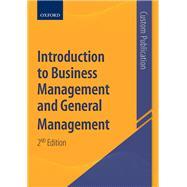Question
Consider the following job attributes: good pay and benefits; meaningful work where you are able to make a difference in peoples lives, save them from
Consider the following job attributes: good pay and benefits; meaningful work where you are able to make a difference in peoples lives, save them from danger, help them to get jobs, and bring aid to places where it is needed most. You have opportunities to learn something new every day, and a lot of travel is involved. If this sounds like your dream job, note that the job is actually in a war or disaster zone with poor living conditions, scarce medical support, and physical danger. Many organizations encounter risks as they do business, but for an international nongovernmental organization (INGO) such as Mercy Corps, danger is the business.
Nongovernmental organizations (NGOs) are humanitarian nonprofit organizations that aim to effect change in environmental, social, human rights, or other issues, and as an INGO, Mercy Corps performs this mission on a global scale. Whether it is bringing relief to refugees in Syria, helping farmers in Ethiopia prepare for drought conditions, or providing educational and employment opportunities to marginalized populations in Nigeria, working in international tough spots is everyday work for Mercy Corps employees. The Portland, Oregonbased organization operates in 40 countries and employs around 4,000 employees, fewer than 200 of whom are based in the United States. The agency deploys talent to where it is needed, which may mean sending African employees to work in the Middle East or Indonesian employees to South Sudan.
To a degree, all companies struggle with hiring, onboarding, managing, and retaining talent. However, Mercy Corps HR challenges put it in a category of its own. For example, even though there is a large pool of individuals who are interested in volunteering and making a difference through their work, Mercy Corps is often looking for a specific set of skills as well as experience living and working under dangerous and volatile conditions, leading the organization to compete with other NGOs for a very small pool of talent for hiring. In addition to skills, it seeks characteristics that will make someone resilient and adaptable: Sensitivity, flexibility, curiosity, and emotional stability under pressure are traits it looks for. CEO Neal Keny-Guyer views cultural intelligence as a critical competency in hiring.
In addition to finding the right talent, keeping them is another challenge. Once hired, onboarding matters a great deal to ensure that new hires can hit the ground running and be effective quickly. They need to ensure that employees can be transported to safety if problems arise, prevent burnout of employees through regular rest and recovery, and provide extensive training that will enable employees to function effectively in a given geography. For example, field workers are trained on topics such as curfews, travel restrictions, how to interact with locals, and communication procedures during emergencies (often by trainers with a military background). Finally, Mercy Corps cannot solely rely on its meaningful mission to attract and retain workers, given the intense competition for talent among INGOs seeking personnel with similar skill sets. Thus, developing an employer brand that supports and engages employees is among the responsibilities of its HR team.Given how critical employees are to Mercy Corps mission, it is no surprise that HR is a strategic partner within the company. To be effective, HR leaders of Mercy Corps need a deep understanding of the companys operations, which may explain the appointment of Nigel Pont, a former regional director for Middle Eastern Operations, to the role of chief people and strategy officer. Part of how Mercy Corps enables business success is to ensure that the local teams are supported by local HR teams and that local HR teams have a voice within the country-level operations.
A key initiative for Mercy Corps is to build in-house expertise in data analytics and ensure that data are harnessed to increase the efficiency of all of its operations. For example, data analytics can be used to forecast how many people will arrive at a specific aid distribution center, ensuring that sufficient staff and resources are available to meet the needs of new arrivals. With the help of a partnership with Cisco, the company aims to make faster, more accurate, and more effective decisions that will help it meet the humanitarian challenges it faces every day.
- What do you think the unique and similar challenges are for NGOs versus for-profit companies in terms of HR and HR strategy?
- What advantages do you think Mercy Corps has in recruiting, hiring, training, and managing employees relative to a domestic business? What are the challenges?
- Cultural intelligence is the ability to work effectively across cultures. How do you think Mercy Corps can hire based on this skill? How can this skill be developed?
Step by Step Solution
There are 3 Steps involved in it
Step: 1

Get Instant Access to Expert-Tailored Solutions
See step-by-step solutions with expert insights and AI powered tools for academic success
Step: 2

Step: 3

Ace Your Homework with AI
Get the answers you need in no time with our AI-driven, step-by-step assistance
Get Started


